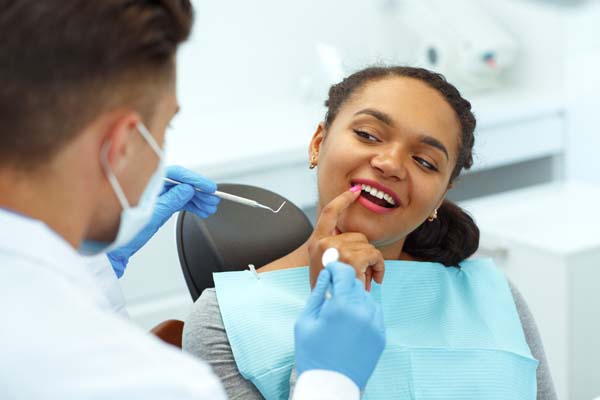A Dentist Explains How to Know Whether You Grind Your Teeth

Do you think you might be grinding your teeth and are looking for a dentist's opinion? Have you ever woken up with a stiff or sore jaw? Do you have a dull, throbbing headache upon waking in the morning?
If so, it may be time for you to visit your dentist. Both of these scenarios are telltale signs that you are grinding your teeth while you sleep. Medically termed bruxism, grinding your teeth can lead to serious oral health issues if not addressed by your dentist.
What is bruxism?
Bruxism, commonly known as teeth grinding, is a condition in which you grind or clench your teeth. This can happen unconsciously while you are awake, or during sleep. In cases of clenching and grinding while asleep, this condition is considered a sleep-related movement disorder. It has been shown that people who have sleep bruxism are more likely to have other sleep disorders, such as snoring or sleep apnea.
How to tell if you grind your teeth
If you suspect you are suffering from bruxism, there are several signs to look out for:
- Tight or sore jaw muscles
- Flattened teeth
- Cracked, chipped, or loose teeth
- Tooth pain or sensitivity
- Dull, achy pain around your ears or temples
- Temporomandibular joint (TMJ) pain, clicking or grinding when opening your mouth
If you are noticing any of these signs or symptoms, the easiest way to confirm whether you are grinding your teeth is by visiting your dentist for an official diagnosis.
Causes of teeth grinding
There are a variety of reasons why people grind their teeth. It is not entirely known what causes bruxism, but it is thought to be due to a combination of physical, psychological and genetic factors. These can include stress and anxiety, an abnormal bite, aggressive or competitive personality types, missing or crooked teeth, other family members with bruxism, or medical disorders such as Parkinson’s disease, epilepsy, gastroesophageal reflux disorder (GERD), or attention-deficit/hyperactivity disorder (ADHD).
Bruxism may also be a side effect of some medications, such as certain antidepressants.
How can your dentist help?
Your dentist is the first person you should visit if you suspect that you are grinding your teeth. During a dental exam, your dentist will look for signs of bruxism such as excessive wear on your teeth, including cracks, chips or loose teeth. Some options to help you reduce or eliminate grinding include:
- Wearing a mouth guard to protect your teeth
- Wearing a splint, which keeps your teeth separated
- Wearing a Mandibular Advancement Device (MAD) to keep your jaw in a fixed position
- Avoid alcohol — alcohol has been shown to intensify grinding during sleep
- Cut back on or avoid foods that contain caffeine
- Use stress management techniques
- Behavioral therapy — training yourself to hold your jaw and mouth in a position to avoid grinding
The good news
The good news is that bruxism, or grinding your teeth, is a very treatable condition. If you suspect that you are grinding your teeth, visit your dentist as soon as possible to discuss your options for reducing or eliminating bruxism. The sooner you catch and treat this condition, the less pain and damage you will endure.
Request an appointment here: https://www.leedentistryoxford.com or call Lee Family and Cosmetic Dentistry at (662) 546-1143 for an appointment in our Oxford office.
Check out what others are saying about our services on Yelp: Read our Yelp reviews.
Related Posts
With Invisalign®, people who want a more inconspicuous alternative to braces now have a solution. Invisalign's transparent aligners provide a discreet and effective treatment for misaligned teeth. However, it is not the best option for everyone. This article goes over the basic eligibility criteria for Invisalign.Invisalign is a modern orthodontic treatment that involves a series…
Invisalign® has emerged as one of the most popular alternatives to traditional metal braces. These teeth-straightening devices are virtually invisible when worn, as their name suggests, yet they can fix many of the teeth alignment issues braces have historically been used for.Examples of orthodontic issues Invisalign can be used to fix include crooked, crowded, poorly…
A dental crown restoration involves two dental visits. Dentists use this type of restoration to repair a range of tooth damage types, including decay, chips, cracks, and teeth worn down by continuous grinding. This guide discusses what you can expect during a dental crown restoration and how a dentist can help ensure a safe and…
Invisalign® is an increasingly popular alternative to traditional metal braces. Many are attracted to its benefits, such as the ability to align their teeth discreetly, comfortable wear, quick treatment times, and the ability to remove the appliance. However, before you settle on this treatment, we need to ensure you are approved for this type of…
